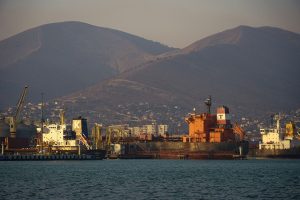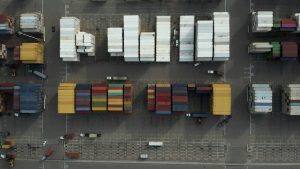The automotive trade between the United States and Brazil has faced numerous challenges in recent years. US manufacturers have struggled with delays in the customs clearance process, an inconsistent regulatory environment, infrastructure issues impacting the supply chain, and tariffs and trade barriers. These challenges have hindered the smooth flow of goods and have had a significant impact on the automotive industry. In this article, we will explore the key challenges faced by US manufacturers in the Brazilian automotive trade and discuss potential solutions to overcome these obstacles.
Key Takeaways
- Delays in customs clearance process have been a major challenge for US manufacturers in the Brazilian automotive trade.
- The inconsistent regulatory environment in Brazil has made it difficult for US manufacturers to navigate the market.
- Infrastructure issues, such as poor roads and limited transportation options, have disrupted the supply chain for automotive parts and components.
- Tariffs and trade barriers have added additional costs and complexities to the automotive trade between the US and Brazil.
- US manufacturers need to work closely with Brazilian authorities and stakeholders to address these challenges and ensure a smoother trade process.
Challenges Faced by US Manufacturers in the Brazilian Automotive Trade
Delays in Customs Clearance Process
Delays in the customs clearance process have been a major hurdle for US manufacturers in the Brazilian automotive trade. The lengthy and unpredictable clearance procedures have resulted in significant delays in getting their products into the market.
Inconsistent Regulatory Environment
The automotive trade between the US and Brazil faces challenges due to an inconsistent regulatory environment. Regulatory policies and procedures can vary, making it difficult for US manufacturers to navigate the Brazilian market. This inconsistency can lead to delays and uncertainties in the trade process. Manufacturers need to adapt and stay updated with the ever-changing regulations to ensure smooth operations.
Infrastructure Issues Impacting Supply Chain
The infrastructure in Brazil poses significant challenges for US manufacturers in the automotive trade. Delays in transportation and logistics can cause disruptions in the supply chain, leading to increased costs and delays in delivering products to the Brazilian markets. Inefficient port operations and road conditions further exacerbate these issues, making it difficult for manufacturers to maintain a smooth and efficient supply chain.
Tariffs and Trade Barriers
Tariffs and trade barriers pose significant challenges for US manufacturers in the Brazilian automotive trade. These barriers can include high import duties, complex customs procedures, and regulatory restrictions. The imposition of tariffs on automotive parts and vehicles can increase costs and hinder market access for US manufacturers. Additionally, trade barriers such as quotas and licensing requirements can limit the ability of US manufacturers to compete in the Brazilian market.
US manufacturers face numerous challenges when it comes to the Brazilian automotive trade. The complex regulatory environment, high import taxes, and cultural differences are just a few of the obstacles they encounter. Additionally, the language barrier and unfamiliarity with local business practices can make it difficult for manufacturers to navigate the market effectively. However, with the right debt collection solutions, these challenges can be overcome. Debt Collectors International offers comprehensive debt collection services tailored to the needs of US manufacturers in the Brazilian automotive trade. Our experienced team understands the intricacies of the industry and can help you recover outstanding debts efficiently. Contact us today to learn more about how we can simplify debt collections for your business.
Frequently Asked Questions
What are the main challenges faced by US manufacturers in the Brazilian automotive trade?
The main challenges faced by US manufacturers in the Brazilian automotive trade include delays in the customs clearance process, an inconsistent regulatory environment, infrastructure issues impacting the supply chain, and tariffs and trade barriers.
Why are there delays in the customs clearance process?
Delays in the customs clearance process can be caused by various factors such as bureaucratic procedures, lack of resources, inefficiencies in documentation processing, and increased security measures.
How does the inconsistent regulatory environment affect US manufacturers in the Brazilian automotive trade?
The inconsistent regulatory environment in Brazil can create challenges for US manufacturers as it leads to uncertainty in compliance requirements, changes in import/export regulations, and difficulties in navigating complex bureaucratic procedures.
What are the infrastructure issues impacting the supply chain in the Brazilian automotive trade?
Infrastructure issues such as poor road conditions, congested ports, inadequate transportation systems, and lack of warehousing facilities can disrupt the smooth flow of goods in the supply chain, leading to delays and increased costs for US manufacturers.
How do tariffs and trade barriers affect US manufacturers in the Brazilian automotive trade?
Tariffs and trade barriers, such as import duties, quotas, and non-tariff barriers, can increase the cost of importing/exporting automotive parts and vehicles, limit market access, and create a disadvantage for US manufacturers compared to local competitors.
What measures can US manufacturers take to mitigate the challenges in the Brazilian automotive trade?
US manufacturers can mitigate the challenges in the Brazilian automotive trade by building strong relationships with local partners, staying updated on regulatory changes, investing in efficient logistics and supply chain management, and actively engaging with government authorities and industry associations to address trade barriers.





